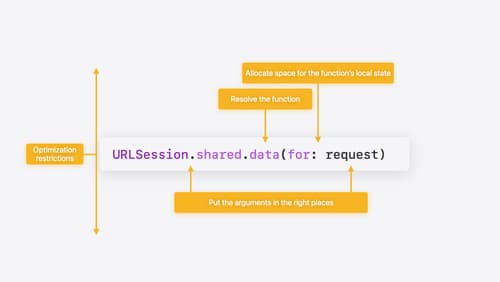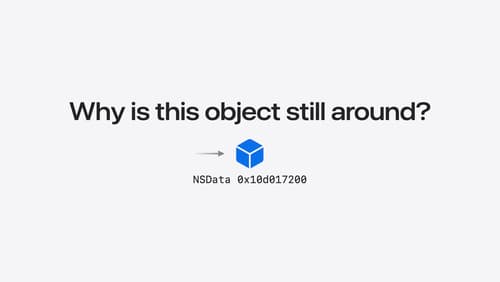what is stack pointer?
Asked on 2024-08-08
1 search
The stack pointer is a register that keeps track of the top of the stack in memory. In the context of function calls, it is used to manage the call frame, which is the memory allocated for a function's local variables and state. When a function is called, memory is allocated on the stack by subtracting from the stack pointer. This allocated memory is known as the call frame. When the function returns, the stack pointer is adjusted back to deallocate the memory.
For more details, you can refer to the session Explore Swift performance at timestamp 07:38.

Explore Swift performance
Discover how Swift balances abstraction and performance. Learn what elements of performance to consider and how the Swift optimizer affects them. Explore the different features of Swift and how they’re implemented to further understand the tradeoffs available that can impact performance.

Analyze heap memory
Dive into the basis for your app’s dynamic memory: the heap! Explore how to use Instruments and Xcode to measure, analyze, and fix common heap issues. We’ll also cover some techniques and best practices for diagnosing transient growth, persistent growth, and leaks in your app.
